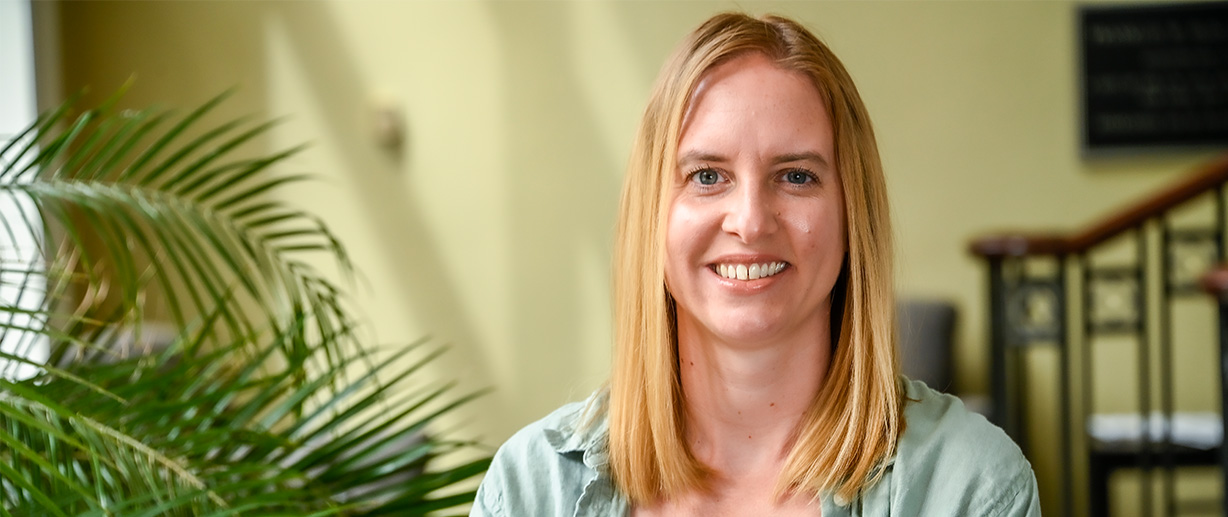The American Council on Education (ACE) has named Dr. Courtney Dorroll an ACE Fellow for the 2022-23 academic year. The program is designed to strengthen leadership in U.S. higher education by identifying and preparing faculty and staff for senior positions in college and university administration.
Dorroll, associate professor of religion and coordinator of Wofford College’s Middle Eastern and North African Studies Program, is one of 46 fellows selected for ACE’s 2022-23 cohort. Fellows are nominated by the senior administration of their college or university.
“I am honored to have been awarded this opportunity to grow and come back to Wofford with innovative ideas to help Wofford with capacity building projects,” Dorroll says. “I aspire to grow and return stronger to help our community reach new heights.”
About 2,500 higher education leaders have participated in the ACE Fellows Program since it was established in 1965. More than 80% of fellows have gone on to serve as senior leaders of higher education institutions. Dorroll is Wofford’s third ACE Fellow since 2017.
“The ACE Fellows program embodies ACE’s goal of enriching the capacity of agile leaders to problem-solve and innovate, and it fuels the expansion of a talented and diverse higher education leadership pipeline,” ACE President Ted Mitchell says. “Fellows continue to excel in prominent leadership roles, and the potential of this new cohort to bring strong leadership to institutions across America greatly excites me.”
The program combines retreats, interactive learning opportunities, visits to campuses and other higher education-related organizations, and placement at another higher education institution to condense years of on-the-job experience and skills development into a single year.
During the placement, fellows observe and work with the president and other senior officers at their host institution, attend decision-making meetings, and focus on issues of interest. Fellows also conduct projects of pressing concern for their home institution and seek to implement their findings upon completion of the fellowship placement.
At the conclusion of the fellowship year, fellows return to their home institution with new knowledge and skills that contribute to capacity-building efforts, along with a network of peers across the country and abroad.
One of Dorroll’s focuses will be seeing how other colleges support teacher-scholars, which are faculty actively engaged with research who provide unique benefits to their students. Dorroll will learn her host institution in May.
